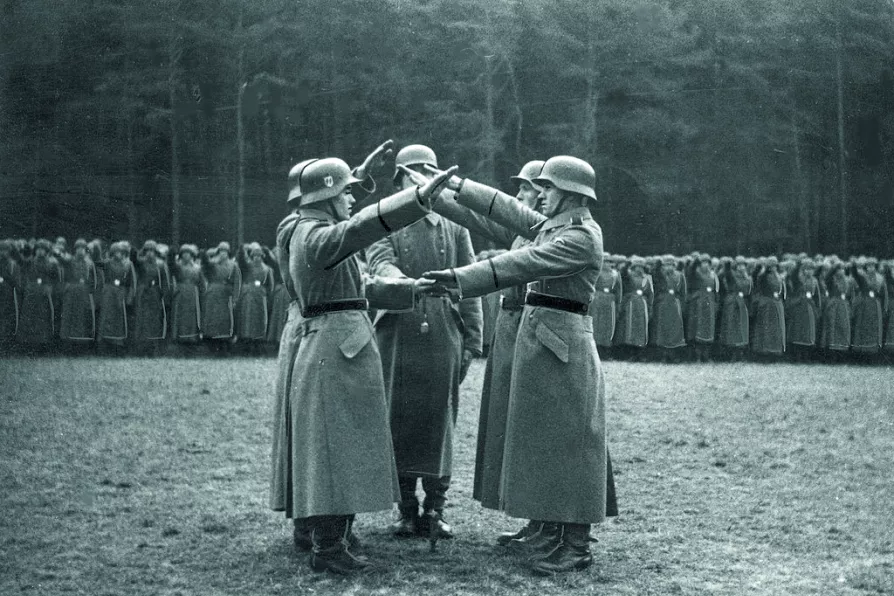Marco Rubio views 1945 as a defeat for the West, wants to revise the post-war order, while German ministers lead the standing ovation. SEVIM DAGDELEN reports

 The 14th Grenadier Division of the Waffen SS ‘Galizien’ is sworn in. In the foreground, soldiers taking the oath and giving the Nazi salute
The 14th Grenadier Division of the Waffen SS ‘Galizien’ is sworn in. In the foreground, soldiers taking the oath and giving the Nazi salute
“THIS was a mistake that has deeply embarrassed parliament and Canada. All of us who were in this house on Friday regret deeply having stood and clapped even though we did so unaware of the context.”
This was how Canadian Prime Minister Justin Trudeau attempted to justify his ovation and that of his fellow parliamentarians for the “Canadian hero” Yaroslav Hunka, a former Waffen SS combatant and, as far as the record shows, an unrepentant Nazi volunteer.
This was no mistake, and “deep embarrassment” should be reserved for those who think blackface is funny. Applauding Nazis is simply in a category all by itself.

As Britain marks 80 years since defeating fascism, it finds itself in a proxy war against Russia over Ukraine — DANIEL POWELL examines Churchill’s secret plan to attack our Soviet allies in 1945 and traces how Nato expansion, a Western-backed coup and neo-nazi activism contributed to todays' devastating conflict

As Moscow celebrates the 80th anniversary of the Nazi defeat without Western allies in attendance, the EU even sanctions nations choosing to attend, revealing how completely the USSR's sacrifice of 27 million lives has been erased, argues KATE CLARK

The annual commemoration of anti-fascist volunteers who fought fascism in Spain now includes a key contribution from Italian comrades










